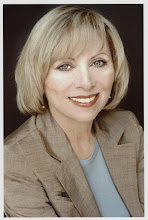Robert Frank recently wrote about the charitable giving of women vs. men in his blog, Wealth Report, http://blogs.wsj.com/wealth/?s=women+charitable+giving&x=39&y=6
He reported the findings of a new survey by Barclay’s: Wealthy women give away nearly twice as much as of their wealth as their male counterparts. The survey of 500 people with investible assets of $1 million or more found that men give an average of 1.8% while women give an average of 3.5% of their wealth to charity.
And it isn’t just a
“Yes, the finding confirms stereotypes. But it also has big implications for the future of philanthropy,” states Frank. The study also highlights how the charitable decisions are made with women looking for input and collaboration and men often making decisions on their own. According to Frank, “wealthy women donors, therefore, will be more likely to work in partnership with charities, rather than dictating terms. That is in stark contrast to the “My-way-or-highway” tendencies of venture philanthropy.”
“The future of philanthropy may ultimately lie in understanding how men and women might work in partnership,” says Matthew Brady, Managing Director, Barclay’s Wealth in the
It’s been my experience that women are motivated by affiliation and desire input and collaboration. Even if they have earned their own money, they are motivated to establish and nurture relationships with their money. They still look for input, others’ needs for the money and terms vs. dictating all of the terms and conditions. It’s just their tendency to have a stronger need for affiliation than for power.

